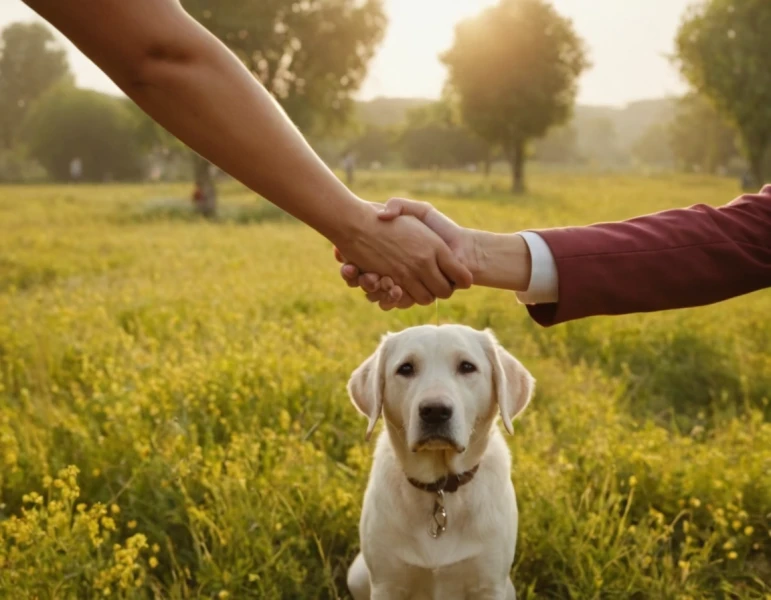Educa UNIVERSITY|HEALTH
Public Health between Animals and People: A Symbol of Union or a Wake-up Call?
Public Health between Animals and People: A Symbol of Union or a Wake-up Call?
Hello! I'm Ruben Aguila, and although I don't consider myself a superhero, in my life I've had to face and understand how the health of people and animals is intertwined in ways that many don't even imagine. Today I'm going to explain it all to you from my personal and professional experience.
What is Animal-to-Human Public Health?
First, let's get on the same page. When I talk about animal-human public health, I'm talking about a crucial interconnection: our health as humans cannot be detached from the health of animals, be they our pets, the animals we consume or those who share our planet.
And it's not just about cute stuffed animals or doggies brightening up Instagram. It's science, and it's called One Health. This approach, adopted by agencies such as WHO, FAO and OMSA, seeks to integrate human, animal and environmental health because, at the end of the day, we are a team in this great ecosystem.
Shocking fact: According to recent studies, more than 60% of human infectious diseases have animal (zoonosis) origins. Examples? Rabies, avian flu, Ebola... and, yes, COVID-19. (What memories, right?)

My Public Health Journey: Life Lessons
I wasn't always a believer in the power of "One Health." My first experience was two decades ago, in a small town where leptospirosis outbreaks affected both people and animals. That chaos taught me that you can't treat the human community by ignoring the conditions of the animals or the environment.
I learned that real successes are achieved when doctors, veterinarians, ecologists and the community work together. It's a mindset shift: we move from treating disease to preventing disease. And yes, prevention is always much cheaper and more effective.
Zoonoses: The Danger We Ignore
When we talk about public health, the topic of zoonoses deserves a red title. Did you know that there are more than 300 diseases we share with animals? Some are well-known, such as bovine tuberculosis, while others emerge silently.
Recent cases:
Rabies: It still kills about 59,000 people a year, mostly from unvaccinated dog bites.
Antimicrobial resistance: Overuse of antibiotics in animals is creating supermicrobes that also affect humans.
Climate change: Alterations in the environment are causing diseases such as dengue and Zika to spread faster.
The Three Pillars of "One Health"
For the concept to work, we need:
Multidisciplinary Collaboration: Veterinarians, physicians, ecologists and communities working together.
Education and Awareness: How many people really understand what a zoonosis is?
Preventive Actions: From vaccinating animals to caring for the environment.
"Caring for our animals and the environment is not just an altruistic act; it is a matter of human survival."
Practical Example: Public Health in the Everyday Context
I tell you a case from a few years ago. A community in which I worked was suffering from recurrent Salmonella infections. Upon investigation, we discovered that the problem was not only in the water they were drinking, but also in the poultry they were raising without sanitary measures.
The solution?
We implemented biosecurity trainings.
We introduced improvements in animal handling facilities.
We created mass vaccination campaigns.
The result: zero new cases in two years.
What Can You Do?
Yes, you. You don't need to be a doctor or veterinarian to make a difference. Here are a few tips:
Vaccinate your pets. It's an investment in your health, too.
Avoid unnecessary use of antibiotics in your animals.
Be responsible with your waste. Mismanagement pollutes water and soil, affecting us all.
Support conservation initiatives. Every small gesture counts.
Conclusion: Public Health as a Symbology of Union
For me, talking about public health between animals and people is not just a professional issue. It is a symbol. It represents how everything is connected and how, when we ignore those links, we pay a heavy price.
Want a healthier world? Start today. Because, as I always say, "One Health" is not an option; it's the path we must follow.
Faculties
Trainings
The faculties embrace diverse academic disciplines and fields of study, opening doors to new perspectives and exploring different spheres of wisdom in a constantly evolving world.




